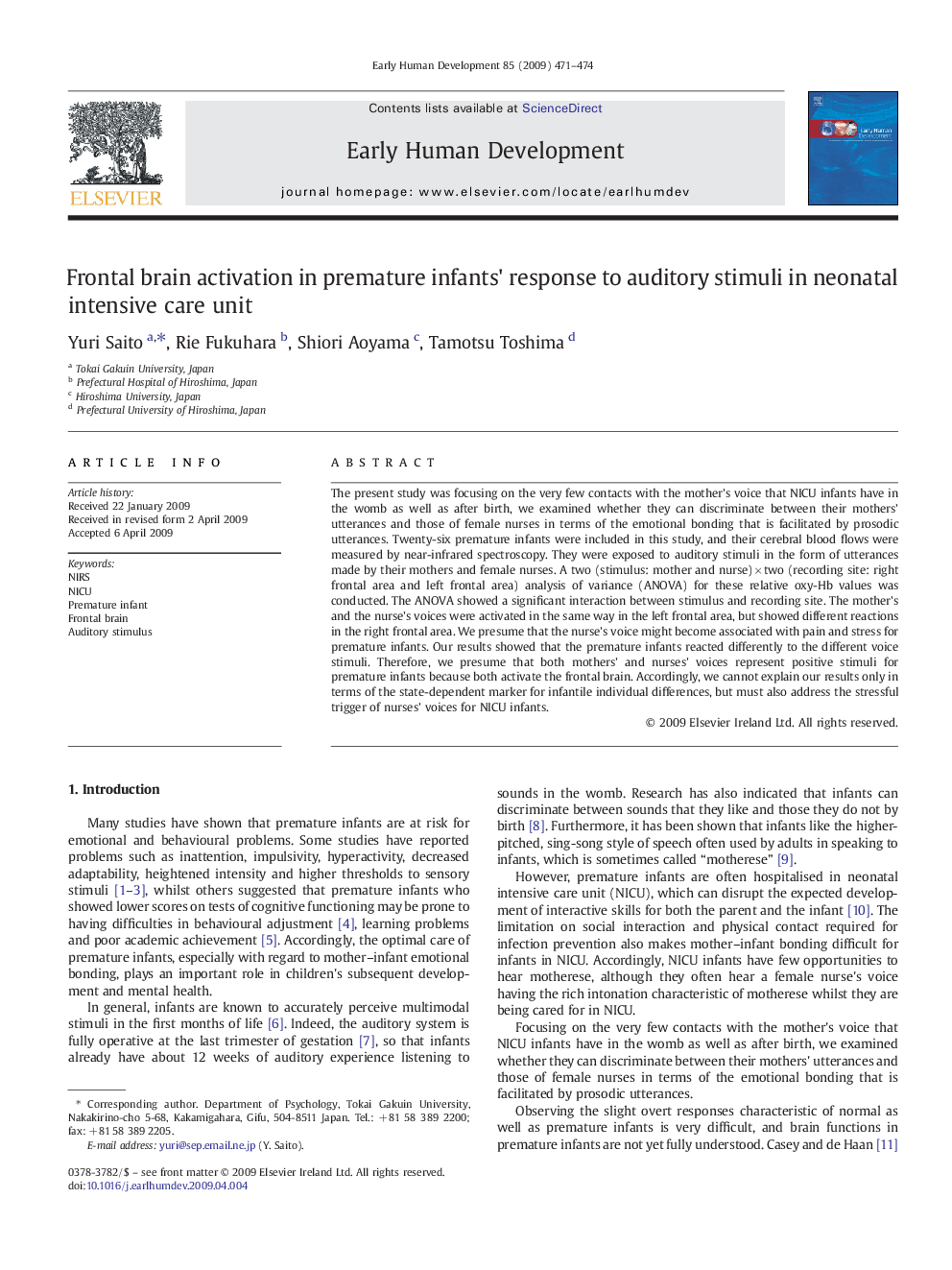| Article ID | Journal | Published Year | Pages | File Type |
|---|---|---|---|---|
| 3917516 | Early Human Development | 2009 | 4 Pages |
The present study was focusing on the very few contacts with the mother's voice that NICU infants have in the womb as well as after birth, we examined whether they can discriminate between their mothers' utterances and those of female nurses in terms of the emotional bonding that is facilitated by prosodic utterances. Twenty-six premature infants were included in this study, and their cerebral blood flows were measured by near-infrared spectroscopy. They were exposed to auditory stimuli in the form of utterances made by their mothers and female nurses. A two (stimulus: mother and nurse) × two (recording site: right frontal area and left frontal area) analysis of variance (ANOVA) for these relative oxy-Hb values was conducted. The ANOVA showed a significant interaction between stimulus and recording site. The mother's and the nurse's voices were activated in the same way in the left frontal area, but showed different reactions in the right frontal area. We presume that the nurse's voice might become associated with pain and stress for premature infants. Our results showed that the premature infants reacted differently to the different voice stimuli. Therefore, we presume that both mothers' and nurses' voices represent positive stimuli for premature infants because both activate the frontal brain. Accordingly, we cannot explain our results only in terms of the state-dependent marker for infantile individual differences, but must also address the stressful trigger of nurses' voices for NICU infants.
